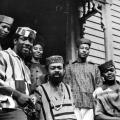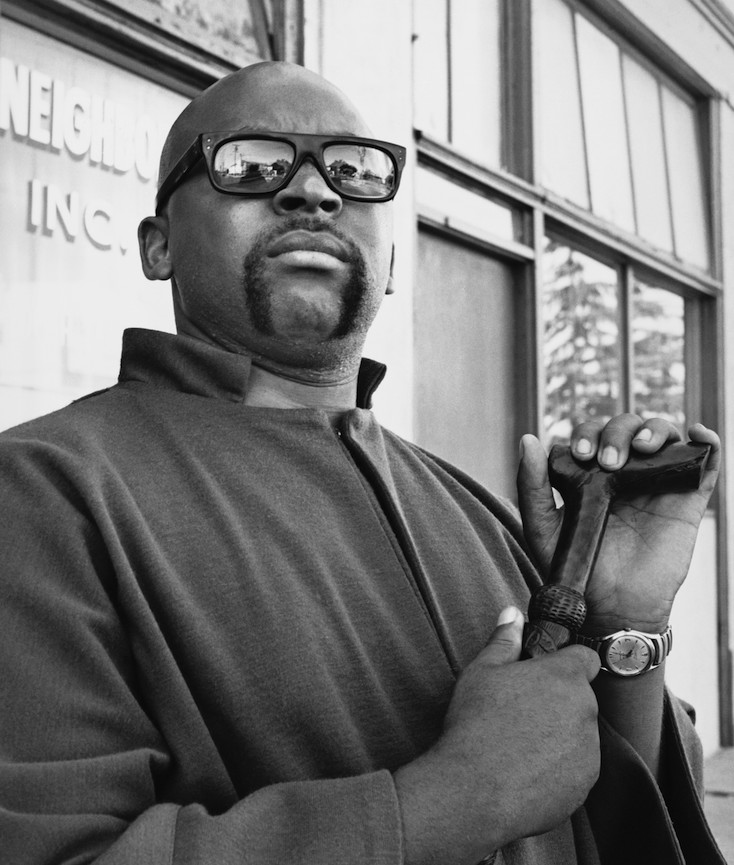111. A Kwanzaa Story: Maulana Karenga
The Pan-Africanist philosopher Maulana Karenga defends the importance of cultural revolution and invents the holiday Kwanzaa.
Themes:
• The Quotable Karenga, ed. C. Halisi and J. Mtume (Los Angeles: 1967).
• M. Karenga, Introduction to Black Studies (Los Angeles: 1982).
• M. Karenga, Kwanzaa: A Celebration of Family, Community and Culture (Los Angeles: 1997).
• M. Karenga, Odu Ifa: The Ethical Teachings (Los Angeles: 1999).
• M. Karenga, Maat: The Moral Ideal in Ancient Egypt: a Study in Classical African Ethics (New York: 2004).
---
• M.K. Asante, Maulana Karenga: An Intellectual Portrait (Cambridge, UK: 2009).
• S. Brown, Fighting for US: Maulana Karenga, the US Organization, and Black Cultural Nationalism (New York: 2003).
• K.A. Mayes, Kwanzaa: Black Power and the Making of the African-American Holiday Tradition (New York: 2009).






Comments
Egypt
John McWhorter has been mentioned in the series and I know Peter liked his Lexicon Valley podcast. McWhorter had this to say which touched on a few issues raised in the series:
"One school I passed through showed a documentary featuring the idea that the Greeks stole their intellectual heritage from a “black” Egypt. The message was that this idea was promising, something to talk up.
No professor in the ensuing discussion was aware that it had been soundly criticized long before by works such as Mary Lefkowitz’ Not Out of Africa. None of the professors was a hotheaded “radical,” but the discussion took place as if such claims by people like Martin Bernal and Molefi Kete Asante were 1970s-fresh and as yet undisputed.
It is the height of miseducation for a student to leave a session like this under the impression that the Greeks stole her ancestors’ heritage—not to mention thinking that the residents of ancient Egypt were her ancestors. Black Americans’ history is in West Africa, among people who did not speak Swahili (learning Swahili as an ancestral tongue is like Irish-Americans picking up some Czech as a “European” language). Those uncomfortable with the idea that seventeenth-century Ghanaians did not have writing and guns should be referred to books like Jared Diamond’s Guns, Germs and Steel, not fables about ancient Egypt."
This comes from a piece for the Manhattan Institute called African American Studies As They Should Be.
A number of times you've spoken about black Americans claiming ancient Egypt as their heritage which figuratively raised my eyebrows. The couple of Egyptians I've known were more Arab and Muslim. African came down the list. Certainly not black African. No slight intended, that's just not how they saw themselves. Perhaps similar, given Brexit, to the way that many British people do not see themselves as European. In the comments on the website, you said that you didn't do a podcast about Nasser, because he was more Pan-Arab, than Pan-African. In the Fela Kuti episode, you reported it was a matter of contention whether the Arab delegates would be observers or full participants at FESTAC.
Seems to me that black Americans attempting to claim ancient Egypt is more a like case of cultural appropriation. Some might say they can't culturally appropriate because they have no power, the point is, it's not theirs. It might be a little like me, born and raised in the UK, attempting to arrogate to myself the culture of two of my favourite authors, Tolstoy and Chekhov. If black Americans can argue that they're all African, I can argue the British and Russians are all European.
Maybe some people would say I can do that.
There were the Kushites, from further south; and people from further south at times ruled Egypt; but I don't think it would be right to say that they were ancient Egyptian or responsible for what we think of as what makes ancient Egypt great: the Valley of the Kings, the pyramids and so on. Not least they were called by different names and painted differently in art. Perhaps I will be corrected. There was a time when the vikings were ruling much of England. Before Alfred the Great. I don't thik that means Scandanavians can claim Stonehenge, Shakespeare, or the codification of football.
Apparently this is an area of controversy. See the wiki page "Ancient Egypt race controversy". There are Egyptian ministers and researchers who state that Ancient Egypt was not black. There are also fringe black researchers who claim that there is a conspiracy to cover up the fact that ancient Egypt was black.
I might prefer to take the view that we're all human, so we can all claim ancient Egypt, Tolstoy and Stonehenge.
(I post this here because Karenga promoted Swahili, I can't remember where you spoke about black Americans claiming ancient Egypt as their own. You did say that one of the benefits of Swahili was that it wasn't connected to a particular ethnic group. That said, McWhorter is a linguist, so perhaps his view has more weight than yours. That is if you both felt the embrace of Swahili to be legitimate for black Americans.).
Add new comment